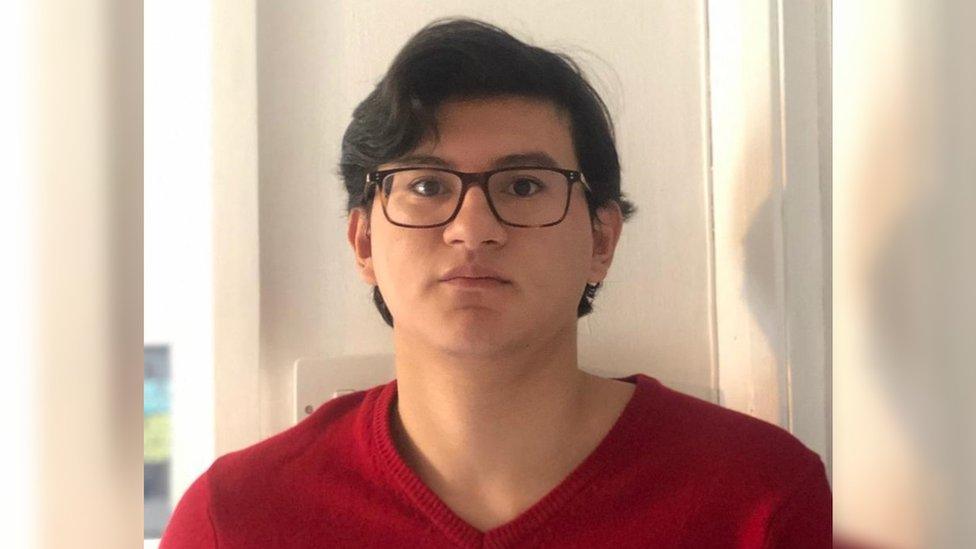Student rent: 'We're paying for a service we're not getting'
- Published
"I have family that work in the hospitality sector," says James Harris, a first-year student, "and at the end of the day, we're paying for a service that we're not receiving."
He is among thousands of students who are unable to return to their accommodation because of the Covid lockdown.
BBC Radio 5 Live's Wake Up to Money programme has now found sharp contrasts in the way universities are handling rent for accommodation that students have had to vacate.
James, 18, joins a growing number of students pledging to strike over rent, who are calling for a rebate on rooms they cannot use.
This largely applies to first-year university students, who started their courses in September or October. In most cases, lectures and seminars have been delivered online to minimise the risk of the virus spreading.
To begin with, students were mostly confined to their halls of residence, but in January, when the UK entered a national lockdown, students who had gone home were told not to return to their university accommodation.
Many, like James, are now paying for rooms they can no longer legally use.
What are universities offering students?
Most first-year accommodation is run by the universities, or by private companies on their behalf.
The BBC approached 28 universities and they all offered some financial recompense, but what each institution is giving to students can vary significantly.
Cardiff University is one of the few that is offering a 100% rebate, but students have to wait until the third term for the money to be taken off their rent.
Other universities are offering percentage discounts, while some are offering a fixed payment.
In the north of England, Salford University is paying up to £1,200 to all students in its halls. 45 miles up the road in Lancaster, where James is based, students are getting a £400 goodwill payment.
In both those cases, the halls are owned by private providers.
Salford's is owned by a company called Campus Living Villages (CLV). The university has taken the financial hit for this and is paying the money to CLV.
A spokesperson for the university told the BBC: "We have received an additional £331,000 from government to support student hardship, but are otherwise funding this ourselves."
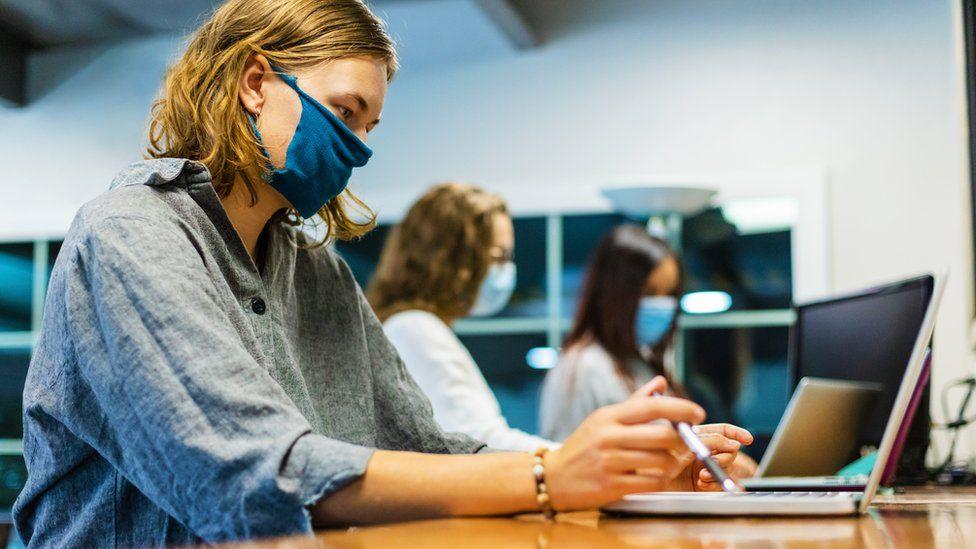
With a small number of exceptions, the return or arrival of students should be paused until at least mid-February, according to the latest government guidance
Lancaster's halls are run by a company called UPP. The university is bearing the cost of those payments, a representative said.
'Not in the real world'
James says hospitality businesses, such as his family's, would behave differently.
"If we have a booking for six nights and we told our customer, 'Sorry, you can't come the first two nights,' I wouldn't expect the customer to receive anything less than those two nights paid back fully," he told the BBC.
"In this case, the £400 isn't equal to the amount of time that I'm being told I shouldn't be returning to university for," he says.
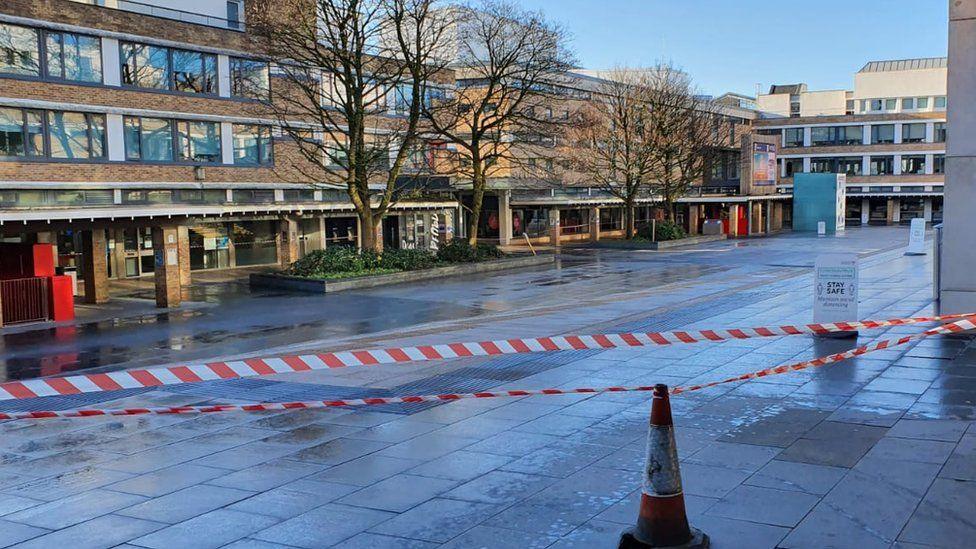
Lancaster University is offering students a "goodwill payment"
"Something needs to be done about this. There have been people online saying, 'Welcome to the real world - that's life,' but ultimately I don't think it is.
"It's pretty unfair to us students. We've been told not to return until the middle of February - for my course in particular - and I think the university will have to take a loss for it, if that's what it's got to be."
The latest government guidance, external is that students yet to return or arrive on campus should not do so until at least mid-February.
Lancaster University said it chose a fixed amount of £400 to give equal value to all its students.
A spokesperson added: "The £400 goodwill payment comes on top of the rent repayment we provided to students in the summer term.
"Altogether, this means we will have returned £10m in total to Lancaster students during the course of the pandemic. In addition, we have allocated extra funds for the student hardship fund and we encourage any student suffering hardship to access this fund."
UPP, the private provider, said: "In accordance with official guidance, UPP has continued to make its rooms at Lancaster University available to students who are permitted to return or have remained in residence."
- Published14 January 2021
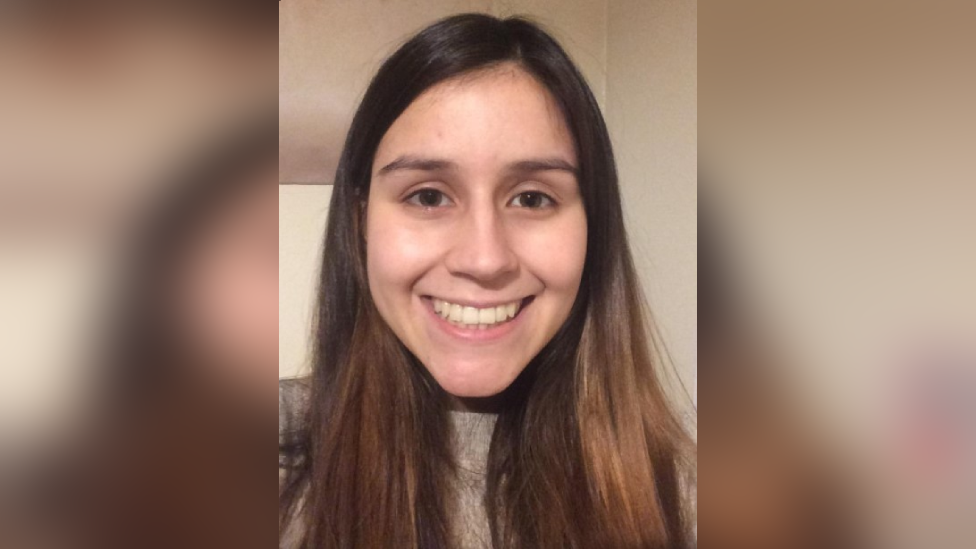
- Published8 January 2021
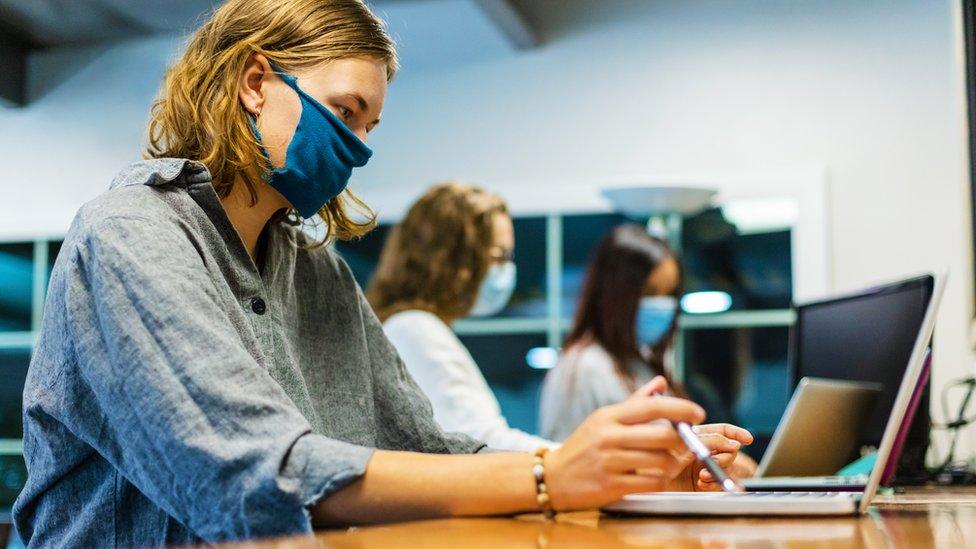
- Published6 January 2021
